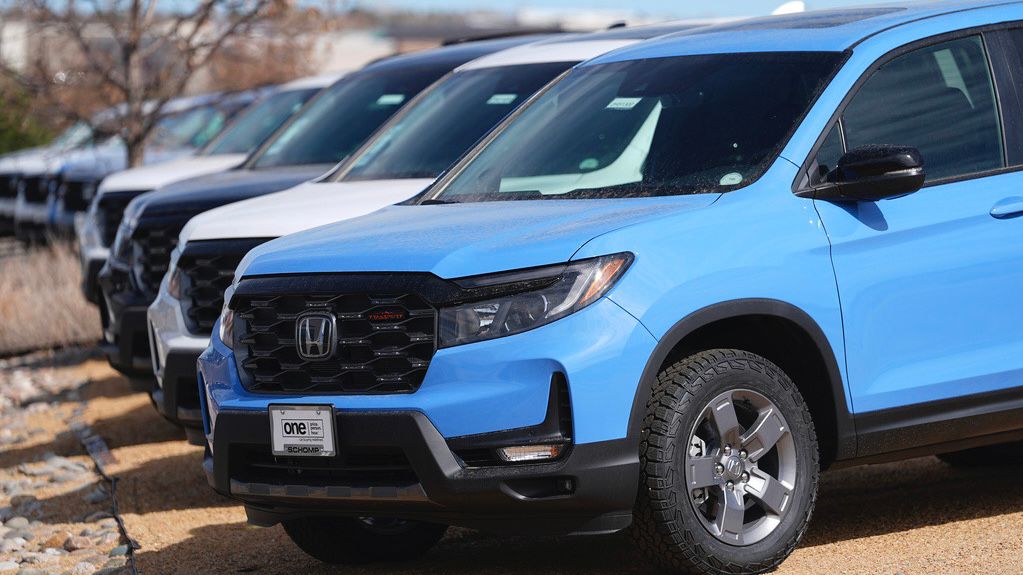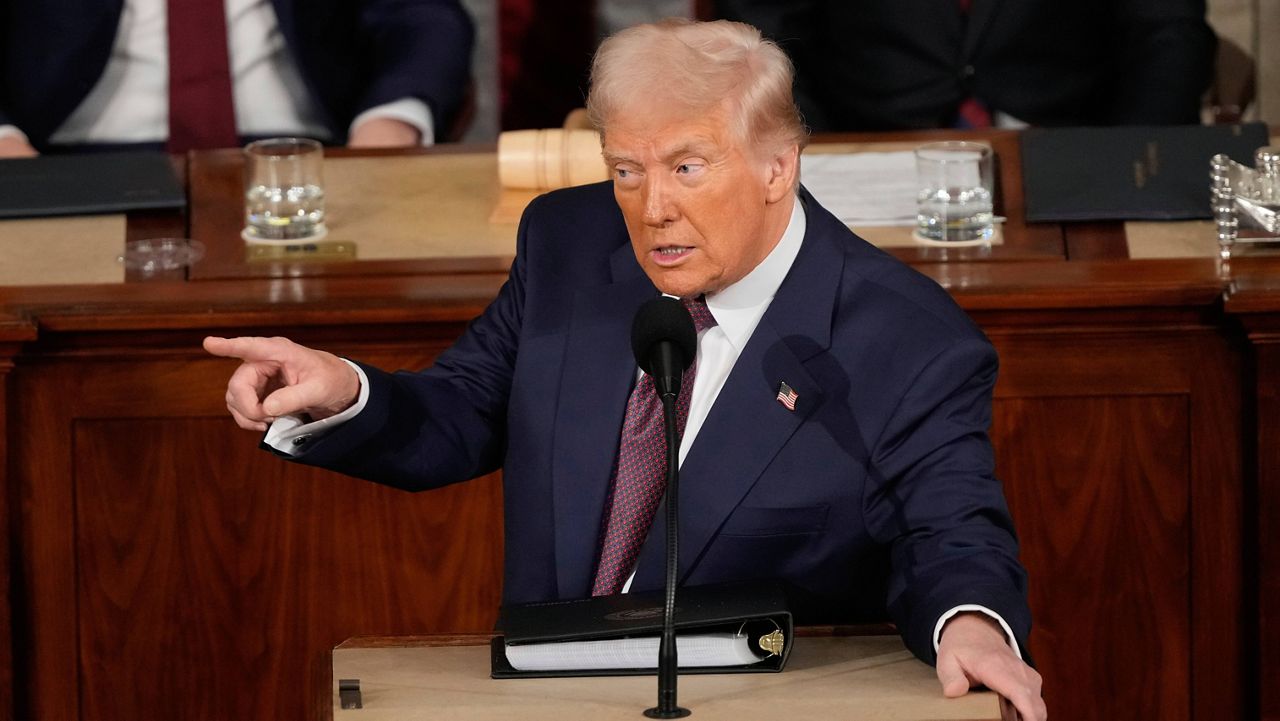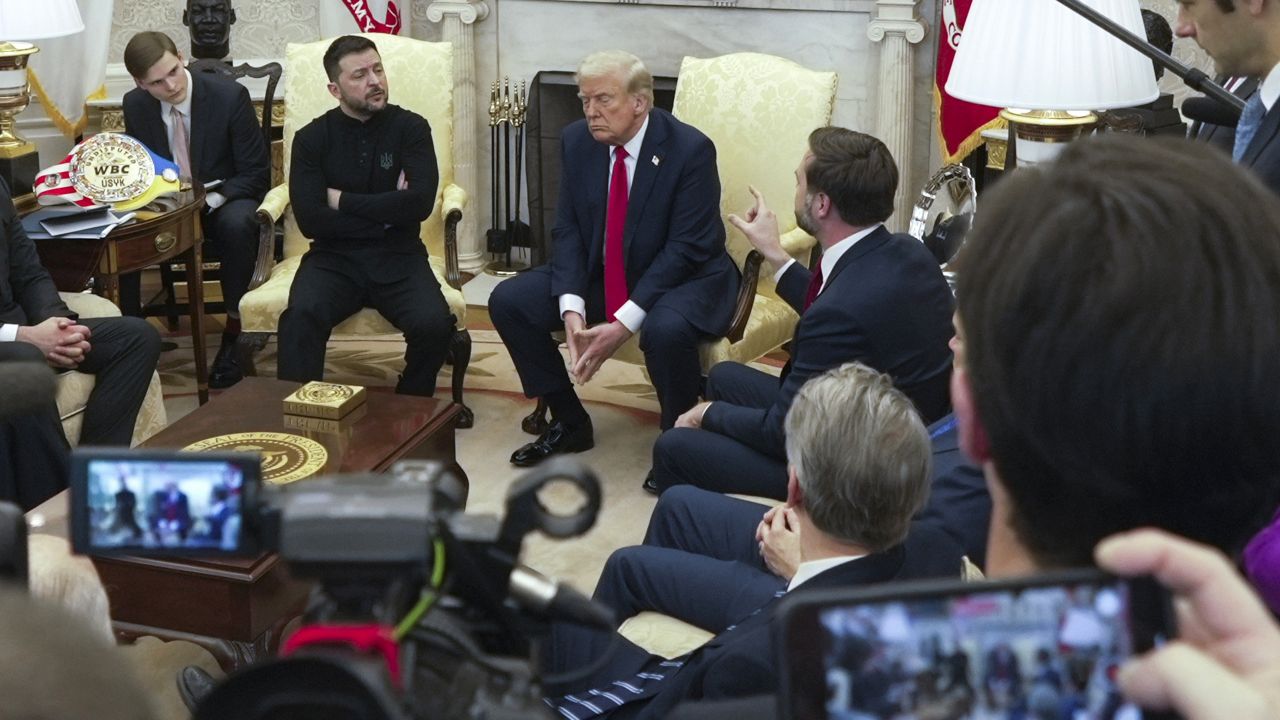“We cannot allow a foreign power to interfere in our democratic process with impunity,” President Joe Biden said Thursday, his first public rebuke of Russia since U.S. officials explicitly linked the country to last year’s so-called SolarWinds breach.
Earlier the same day, the United States imposed a new round of sanctions on Russia and expelled 10 Russian diplomats in response to the hacking campaign that breached vital federal agencies, as well as for election interference.
What You Need To Know
- The Biden administration has imposed a new round of sanctions on Russia and expelled 10 Russian diplomats
- The actions come in response to a hacking campaign that breached vital federal agencies, as well as for election interference
- “I was clear with President Putin that we could have gone further, but I chose not to do so, I chose to be proportionate,” Biden said of the sanctions
- The U.S. also announced actions for reports that Russia encouraged Taliban attacks against U.S. and coalition personnel in Afghanistan, but declined to go into further detail
The sanctions, foreshadowed for weeks by the White House, represent the first retaliatory action announced against the Kremlin for last year's hack.
“I was clear with President Putin that we could have gone further, but I chose not to do so, I chose to be proportionate,” Biden said of the sanctions, referencing a phone call between the two leaders that took place on Tuesday.
“The United States is not looking to kick off an … escalation or conflict with Russia. We want a stable, predictable relationship,” the president continued, adding: “But if Russia continues to interfere with our democracy, I am prepared to take further actions to respond. It is my responsibility as President of the United States to do so.
In the SolarWinds intrusion, Russian hackers are believed to have infected widely used software with malicious code that enabled them to access the networks of at least nine agencies, part of what U.S. officials believe was an operation aimed at mining the secrets of the American government.
The U.S. Treasury sanctioned "32 entities and individuals carrying out Russian government-directed attempts to influence the 2020 U.S. presidential election, and other acts of disinformation and interference," as well as "eight individuals and entities associated with Russia’s ongoing occupation and repression in Crimea," in partnership with allies in the European Union, the United Kingdom, Australia and Canada.
The measures are intended to send a clear retributive message to Russia and to deter similar acts in the future. They come amid an already tense relationship between the U.S. and Russia, but it remains unclear whether the actions would actually result in changed behavior, especially since past measures by the U.S. have failed to bring an end to Russian hacking.
Asked Thursday about whether Putin gave any indication in Tuesday’s call that the sanctions would offer significant deterrence for future interference, Biden demurred, saying: “We indicated we would talk about it.”
“I urged [Putin] to respond appropriately, not to exceed it, because we can move as well,” he added. “My hope and expectation is we will be able to work out a modus vivendi, but it's important that we have direct talks and that we continue to be in contact.”
The president also indicated that he is optimistic the two countries will be able to find common ground, having invited Putin and other administration officials to participate in an in-person summit in the coming months to discuss “a range of issues facing our countries.”
Biden hopes for a number of positive outcomes from that potential meeting, including a robust strategic stability dialogue; a plan to deal with global challenges, like reigning in nuclear threats from Iran and North Korea; ending the global pandemic; and addressing climate change.
But Russian Foreign Ministry spokeswoman Maria Zakharova warned that “such aggressive behavior will undoubtedly trigger a resolute retaliation.”
“Washington should realize that it will have to pay a price for the degradation of the bilateral ties,” Zakharova said, adding that “the responsibility for that will fully lie with the United States.”
She said the ministry has summoned the U.S. ambassador for a “hard conversation,” but wouldn’t immediately say what action Russia will take.
U.S. officials are still grappling with the aftereffects of the SolarWinds intrusion, which affected agencies including the Treasury, Justice, Energy and Homeland Security departments, and are still assessing what information may have been stolen. The breach exposed vulnerabilities in the supply chain as well as weaknesses in the federal government's own cyber defenses.
The actions represent the second major round of sanctions imposed by the Biden administration against Russia. Last month, the U.S. sanctioned seven mid-level and senior Russian officials, along with more than a dozen government entities, over a nearly fatal nerve-agent attack on opposition leader Alexei Navalny and his subsequent jailing.
The Associated Press contributed to this report.










